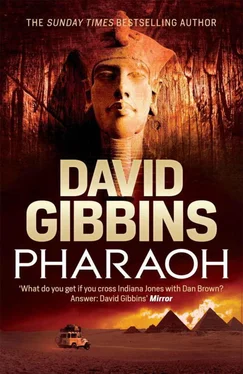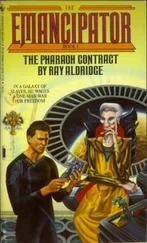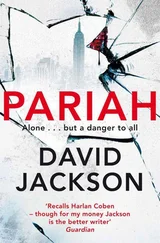The Sudan had been the last great bastion of the African slave trade, and Gordon’s appointment had met with approval among the moral crusaders of England, among them no less a person than Queen Victoria herself. If anyone could sort it out, it was Gordon, a man of near-suicidal courage who as a young officer had stood exposed on the parapets in the Crimea in order to attract Russian fire and pinpoint enemy positions, and whose Christian fervour seemed to match the growing evangelical mood of the country. Yet as Gordon himself realised soon after taking up his appointment, supporting Ottoman expansionism in the Sudan was a recipe for disaster, with ominous consequences. The slave trade may have been abhorrent to Victorian sensibility, but it was a mainstay of the Sudanese economy and so deeply embedded in tribal loyalties and hierarchies that to suppress it suddenly would require massive military intervention. To the horror of his admirers, Gordon had come out in favour of maintaining the trade in the short term. He had realised that the tribes of Sudan were a complex mosaic of alliances and visceral enmities; the one thing they shared in common was a hatred of Ottoman rule, a hatred that had spread among some to include all outsiders, providing a fertile breeding ground for fundamentalist Islam, and a new cry for jihad fanned by the emergence of a charismatic local Sufi known as the Mahdi, the chosen one.
Yet it was Gordon, not the Mahdi, who was now the nub of the problem, and the reason why Mayne was here. The British imperial system that had so often succeeded by giving free rein to talented individualists was also prey to their whims, to their occasional instabilities and bouts of insanity. Much depended on the shared culture of moral decency and gentlemanly behaviour, of unswerving loyalty to Queen and country that allowed the Colonial Office to send out men to administer vast tracts on their own, confident that their discretion and judgement would accord with the wishes of Her Majesty’s government. The men who occupied these positions of power with restraint were the genius of the British system, but where restraint fell away, they could be its greatest weakness. With the expansion of the empire, a secret office had been established in Whitehall under the remit of military intelligence to develop a safety net, a series of checks and balances. Much of the work involved intelligence-gathering, character assessment, advice to government on whom to appoint and where, but there was also a contingency for what to do if things went wrong.
For six months now, all eyes had been on Gordon in Khartoum, and everything hung in the balance. The British government had supported the Egyptian Khedive’s regime in the Sudan, but Prime Minister Gladstone’s new Liberal government had no intention of dispatching a military force of the size that would be required to defeat the Mahdi. There was, however, a need to evacuate Europeans and Egyptian officials and their families from Khartoum, and Gordon was the man for the job. He had seemed to agree to this brief, but then something had gone wrong. He had become increasingly cut off in Khartoum, holed up in the Governor’s palace. The messages that came out were terse, infrequent, increasingly erratic. Whitehall began to fear the worst. Gordon’s highly individual form of Christianity allowed him to empathise with Islam in a way that some found disturbing, to the extent of wondering whether he himself might go over to the Mahdi as some Europeans captured by the dervishes had done. The prospect was a nightmare for Gladstone’s government, and would be a catastrophe for Britain’s reputation abroad. If rescue were impossible, better that Gordon die a martyr.
Mayne took a swig of water, and shut his eyes. He thought of the men below the cliff struggling up the river, the nearly impossible nature of the task; not for the first time he wondered whether there were other forces at play here, whether this excruciating exercise was deliberate, a very public attempt to rescue Gordon that was surely doomed to failure. At the moment, the likely success of the expedition and the nature of his own involvement hung in the balance, but he knew that with the clock ticking and Khartoum starving, something would have to give way very soon.
He himself was as deeply implicated in empire as any of them. His father had been an Irish indigo planter in Behar, in the shadow of the Himalayas. As a small child Mayne had thought nothing of the thousands of men and women they employed like slaves in the crushing mills, and the opiate splendour of their villa and the gardens where he had played. It was the only world he had known, and it seemed the natural order of things. When he was eight, at boarding school in England, his parents and brother and sister had been hacked to death by mutineers of the Bengal Army in Cawnpore, their bodies thrown down with those still living into a well. His beloved ayah had survived long enough to tell the story of their brutal torture and deaths to the British soldiers who had arrived too late to rescue any of them, but who had exacted a terrible vengeance. Mayne thought of Burnaby’s four-barrelled howdah pistol and the slaughter at El Teb. Any lingering sense of chivalry and sport in war was long gone now, expunged by the Zulu slaughter at Isandlwana and Rorke’s Drift, by the bloodbaths of Colonel Hicks’ last stand and the Red Sea battles, which could only be a foretaste of what was to come.
He opened his eyes and raised himself up so he could see over the parapet to the ridge opposite. He was looking for a telltale flash of light off a blade or a gun barrel, but he knew that the reconnaissance scouts of the Ansar were too good for that; they had blackened the barrels and receivers of their Remingtons, and with the sun behind them on that ridge they would give off no reflection. He squatted on his knees, keeping his head below the parapet, feeling better after his rest. The soldier tending the fire below the billycan took his pipe out of his mouth and spoke. ‘General Wolseley came to talk to us last week. He claimed that no amount of dervishes could withstand the smallest of our columns.’
‘Bosh,’ exclaimed Jones, propping himself up from where he had been lying against the parapet. ‘Hicks’ army of ten thousand two years ago was annihilated. Annihilated. All of the wounded were murdered with those spears, and the prisoners they took had their eyes gouged out and their manhoods ripped off before being crucified, when the dogs ate them alive. I heard it myself from a Dongolese who had been there and seen it all.’
Mayne tightened his bootstraps, and paused. It sounded like a typical soldier’s exaggeration, except that it was true. ‘Hicks’ army was made up of Egyptian conscripts, fellahin from the Nile valley,’ he said. ‘About the least likely soldiers you can imagine, and terrified of the desert. Quite a few of them had been in the rebel Egyptian army that we defeated at Tel el-Kebir when we first invaded Egypt in ’83, and some of them were still prisoners in chains when they were conscripted for the Sudan. But we have to hope that Wolseley is right. After all, he was talking about British soldiers. About the best. About soldiers like you, Jones.’
Jones stiffened. ‘Johnny Fuzzy-Wuzzy won’t take me without a fight.’
‘Indeed. Now let’s get cracking and set up a fire position on that parapet. I want to be ready when the sun drops out of our eyes and we can see that ridge clearly.’
Mayne lay against the parapet overlooking the Nile and extended his telescope. High above him he heard the sound of birds flying north, huge flocks of flamingos migrating from the desiccated marshlands below Khartoum, a whistling and whooshing that followed the flow of the river rather than working against it, as the expedition was. For a moment he felt a chill down his spine, as if he were watching the remaining life force of that place bleeding away past him. He shook off the thought and scanned the opposite clifftop with his telescope, tracing the jagged line of rock from the crag where the signallers had set up the heliograph to the furthest point he could see in the dust haze to the south, well beyond rifle range. The afternoon sun was arching west and framed the line of the ridge with absolute clarity, but made it impossible to see through the cracks and gaps where Mahdist sharpshooters might be lurking. He lowered the telescope and shaded his eyes. In this light all they could hope to see was a puff of smoke, and that would give them less than a second before the bullet whined overhead or smacked into the rock, or into one of them. Shaytan had told him that some of the Madhi’s men had become highly proficient with their Remingtons, and they would have the advantage of the sun behind them. Mayne realised that he might be watching and waiting interminably. He would give it half an hour longer, until the sun had dropped below the level of the hills on the horizon, and then he would leave the sangar and make his way down the scree slope below the cliff towards the river.
Читать дальше












